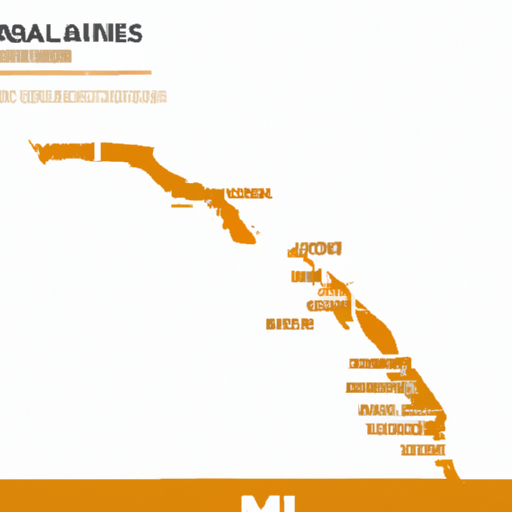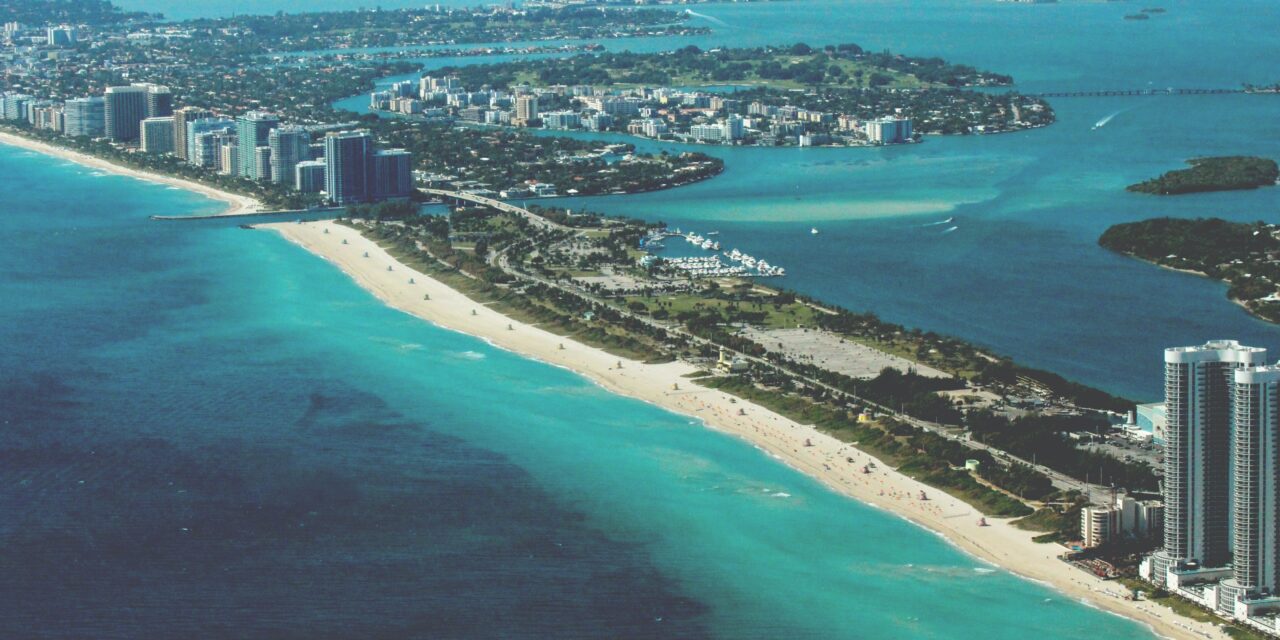In this article, we’ll explore whether or not Miami is a good place to live. We’ll discuss the city’s vibrant culture, beautiful beaches, and diverse neighborhoods. You’ll learn about the weather and the cost of living in Miami, along with the job market and quality of life. So, if you’re considering making Miami your new home, stay tuned to find out if it’s the right fit for you.
Cost of Living in Miami
Housing costs
When considering the cost of living in Miami, housing expenses are a primary factor to consider. The city’s vibrant real estate market has seen a significant increase in property prices in recent years. The average cost of a home in Miami is higher than the national average but can vary depending on the neighborhood. Rent prices have also risen, making it challenging to find affordable housing options. It is essential to budget wisely and research extensively to find housing that fits your financial needs.
Transportation expenses
Transportation expenses in Miami can vary depending on your preferred mode of transportation. Owning a car comes with the cost of purchasing, insurance, and maintenance, not to mention the additional expense of parking. Public transportation, such as buses and trains, offer a more affordable option, but it may not always be reliable or convenient. Ridesharing services like Uber and Lyft are popular in Miami, providing a convenient and easily accessible means of transportation, albeit at a higher cost.
Food prices
Miami is famous for its diverse culinary scene, offering a wide range of dining options for food enthusiasts. However, dining out can become expensive, especially in tourist areas or upscale restaurants. Cooking meals at home can help save money, especially if you take advantage of local markets and grocery stores for fresh produce and affordable pantry staples.
Other expenses
Other daily expenses, such as utilities, internet service, and entertainment, should also be factored into your cost of living in Miami. Utility bills can vary depending on the size of your home and personal consumption habits. Internet service providers in the area offer a variety of packages, allowing you to choose an option that suits your budget and connectivity needs. Miami boasts a vibrant nightlife and an array of entertainment options, but these activities come with their own costs, and it’s essential to plan your spending accordingly.
Climate in Miami
Temperature
Miami’s tropical climate is one of its defining characteristics. The city enjoys warm temperatures year-round, with average highs ranging from the upper 70s in winter to the mid-90s in the summer. The consistently warm weather allows for a wide range of outdoor activities, but it’s important to be prepared for the heat and stay hydrated during the hotter months.
Humidity
While the warm temperatures in Miami are appealing to many, the city’s high humidity levels can be challenging, especially for newcomers. The humidity often hovers around 70-90%, which can make the air feel heavy and sometimes uncomfortable. It’s important to stay hydrated and seek shade or air-conditioned spaces when the humidity becomes overwhelming.
Rainfall
Miami experiences a rainy season from May to October, coinciding with the Atlantic hurricane season. During this time, heavy thunderstorms are common, often occurring in the afternoon or evening. Rainfall can be intense but typically brief, allowing for ample sunshine throughout the day. It’s important to be prepared for sudden rain showers and carry an umbrella or raincoat when necessary.
Hurricanes
As Miami is located along the Atlantic coast, it is susceptible to hurricanes during the hurricane season. While the city has robust infrastructure and emergency response systems in place, it is crucial to be aware of hurricane preparedness protocols and stay informed about potential threats. Hurricane evacuation zones and emergency supplies should be familiar to residents to ensure their safety during hurricane events.
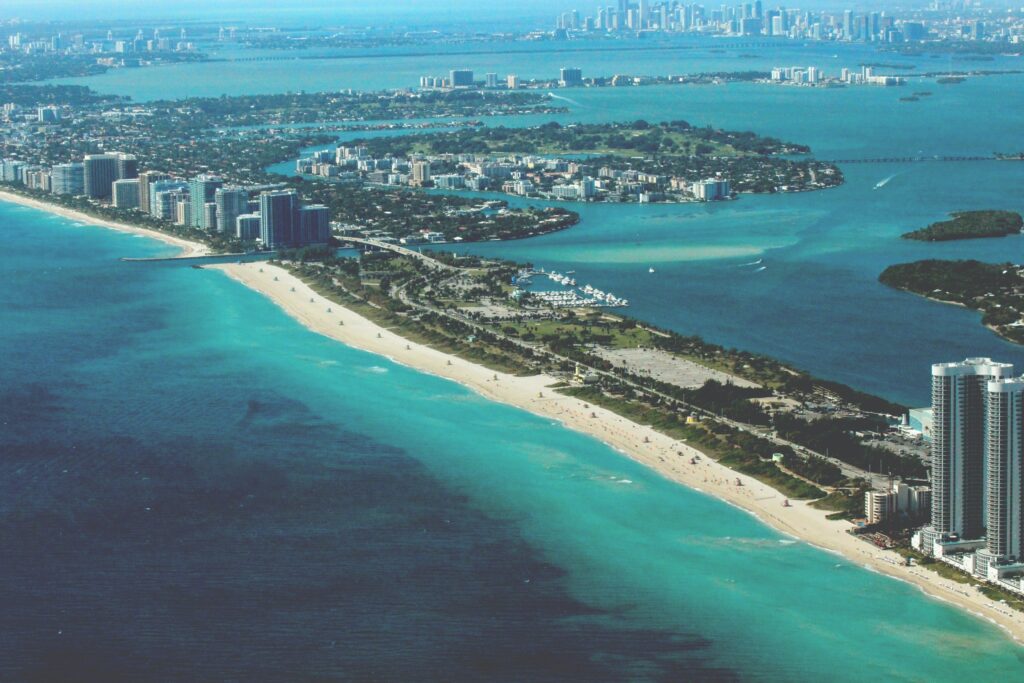
Job Opportunities in Miami
Major industries
Miami has a diverse economy with several major industries driving its job market. The city is known for its booming tourism industry, with numerous hotels, resorts, and entertainment venues providing employment opportunities. Additionally, Miami has a strong presence in the financial sector, with several international banks and financial institutions based in the city. The creative industry, including film, television, and advertising, also contributes to Miami’s job market.
Unemployment rate
As with any city, Miami’s job market can fluctuate depending on economic conditions. It’s worth noting that the unemployment rate in Miami tends to be higher than the national average. However, the city’s diverse and expanding economy also creates new employment opportunities regularly. It’s important to network, research job prospects, and be proactive in your job search to increase your chances of finding suitable employment.
Average salary
The average salary in Miami varies depending on the industry and job position. The cost of living in Miami should be considered when evaluating salaries, as it may be higher compared to other regions. It’s important to weigh the salary offered against the expenses you will incur and ensure that it provides a comfortable standard of living for you and your family.
Career prospects
Miami’s robust and diverse economy offers various career prospects across multiple industries. The city’s strategic geographical location, as a gateway between the United States and Latin America, also presents opportunities for individuals with bilingual skills and an understanding of international business. It’s important to explore and take advantage of the city’s networking events, job fairs, and professional development opportunities to enhance your career prospects in Miami.
Education in Miami
School districts
Miami offers a range of options for families seeking quality education for their children. The city is divided into various school districts, each with its own educational programs and resources. It’s important to research and consider the specific district’s reputation and the schools within it when choosing a neighborhood to reside in.
Higher education options
For those seeking higher education, Miami is home to several reputable colleges and universities. Institutions such as the University of Miami, Florida International University, and Miami Dade College offer a wide array of academic programs and opportunities for both local and international students.
Quality of schools
The quality of schools in Miami can vary significantly. Some schools consistently rank highly in academic performance, while others may face challenges. It’s crucial for families with school-age children to thoroughly research and assess the schools in their desired districts to ensure that they meet their educational expectations and requirements.
Access to educational resources
Miami offers access to a wealth of educational resources, including public libraries, museums, and cultural centers. These institutions provide residents with opportunities for lifelong learning and personal growth. Additionally, Miami’s diverse population provides a unique multicultural environment, exposing individuals to different languages, cultures, and perspectives, enhancing their overall education and understanding of the world.

Safety in Miami
Crime rates
Like any major city, Miami does have crime rates that should be taken into account when deciding on relocation. However, the city has continuously made efforts to improve safety and reduce crime through community policing programs and partnerships with law enforcement agencies.
Neighborhood safety
Miami has a diverse range of neighborhoods, each with its distinct characteristics and safety levels. Some neighborhoods are known for their low crime rates and strong community bonds, while others may have higher crime rates. Researching and visiting potential neighborhoods is crucial to finding a safe and comfortable place to live in Miami.
Emergency services
Miami has a robust emergency service infrastructure, including police, fire, and medical assistance. Residents can expect a timely response from emergency services in case of any emergencies or medical needs. It’s important to familiarize yourself with emergency contact numbers and protocols to ensure your safety and well-being.
Disaster preparedness
As a coastal city, Miami is prone to certain natural disasters, such as hurricanes. The city has comprehensive disaster preparedness plans in place, which include evacuation routes, designated shelters, and communication systems. Staying informed about potential threats and being prepared with emergency supplies is essential for residents in Miami.
Cultural Diversity in Miami
Melting pot of cultures
Miami is known for its diverse and multicultural population. The city’s unique blend of cultures contributes to its vibrant and energetic atmosphere. Residents have the opportunity to experience a wide range of ethnic traditions, culinary delights, and cultural events that make Miami a truly global city.
Ethnic festivals and events
Throughout the year, Miami hosts various ethnic festivals and events celebrating the city’s diverse heritage. These events provide an opportunity for residents and visitors alike to immerse themselves in different cultures, enjoy traditional music and dance performances, and savor authentic cuisine from around the world.
Multilingual community
Miami’s diverse population has created a multilingual community where English, Spanish, and other languages are commonly spoken. This linguistic diversity adds to the city’s charm and creates an inclusive environment where individuals from different backgrounds can communicate and connect with ease.
Tolerance and acceptance
Miami prides itself on being a tolerant and accepting city, embracing people of all backgrounds, religions, and sexual orientations. The city’s multicultural makeup and long history of immigration have fostered an environment of respect and understanding. Miami promotes diversity and equality, making it a welcoming place for residents from all walks of life.
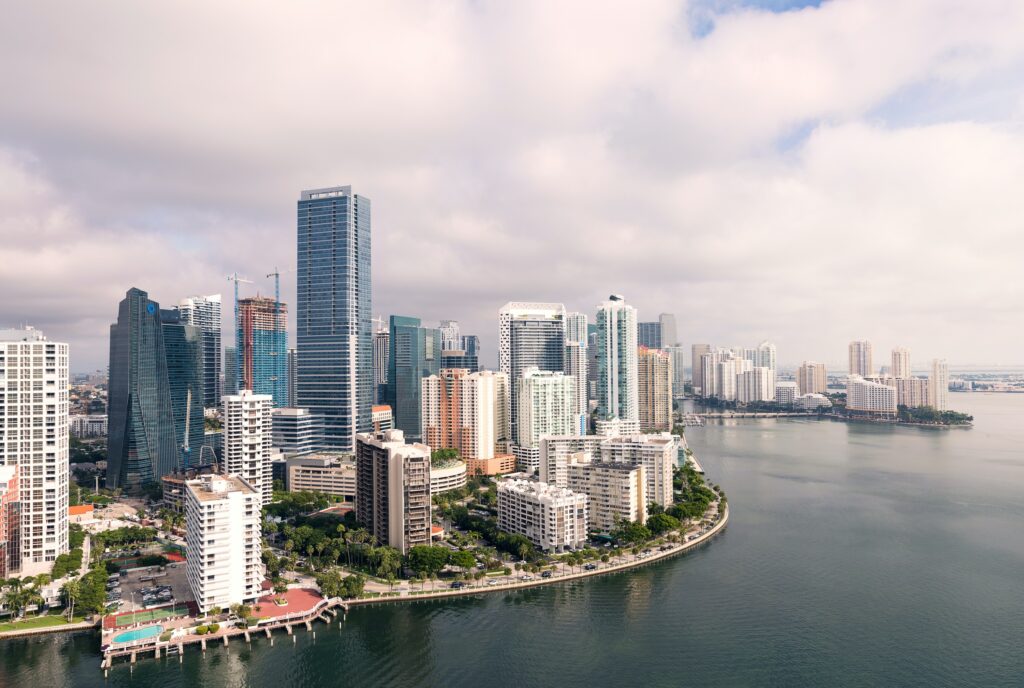
Recreational Activities in Miami
Beaches and water sports
Miami’s picturesque beaches are a major draw for residents and tourists alike. With miles of sandy shores and crystal-clear waters, the city offers numerous opportunities for sunbathing, swimming, and various water sports like surfing, paddleboarding, and jet-skiing.
Parks and outdoor spaces
In addition to its stunning beaches, Miami boasts a plethora of parks and outdoor spaces where residents can enjoy recreational activities. From the iconic Miami Beach Boardwalk to the expansive Everglades National Park, there is no shortage of opportunities to explore nature, hike, bike, or have a picnic with friends and family.
Art and cultural events
Miami’s vibrant arts and culture scene is another significant advantage for residents. The city is home to numerous art galleries, museums, and cultural institutions, showcasing a diverse range of artistic expressions. Additionally, Miami’s Wynwood Arts District is known for its vibrant street art, and the annual Art Basel Miami Beach attracts renowned artists and art enthusiasts from around the world.
Sports teams and venues
For sports enthusiasts, Miami offers a variety of professional sports teams, including the Miami Heat (NBA), Miami Dolphins (NFL), and Miami Marlins (MLB). Additionally, several world-class stadiums and arenas in the city host various sporting events and concerts throughout the year, providing ample entertainment options for residents.
Healthcare in Miami
Quality of healthcare facilities
Miami is home to numerous state-of-the-art healthcare facilities, including hospitals, clinics, and medical centers. The city offers a wide range of medical specialties and services to cater to residents’ healthcare needs. Many healthcare institutions in Miami have received recognition for their high-quality care and expertise.
Access to specialized medical care
Miami’s diverse population has led to the availability of specialized medical care for various conditions and ailments. Residents can access specialized medical facilities and experts in fields such as cardiology, oncology, and neurology, among others. This access to specialist care ensures that residents can receive the necessary treatment without traveling long distances.
Health insurance options
Residents of Miami have access to a variety of health insurance options, including private insurance plans and government-funded programs like Medicaid and Medicare. It’s essential to research and select a health insurance plan that suits your specific healthcare needs and financial situation.
Wellness and fitness resources
Miami’s warm climate and dedication to an active lifestyle make it an ideal place for individuals seeking wellness and fitness resources. The city offers a wide range of gyms, fitness centers, and outdoor recreational facilities, allowing residents to pursue their fitness goals and maintain a healthy lifestyle. Additionally, Miami’s focus on wellness extends to numerous spas, wellness retreats, and holistic health centers, providing residents with opportunities to relax and rejuvenate.
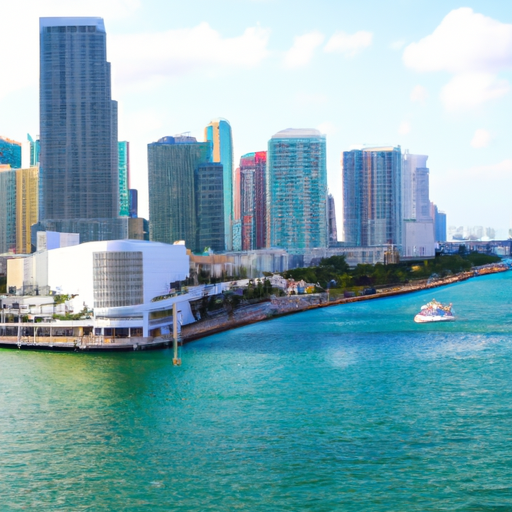
Transportation in Miami
Public transportation
Miami offers a public transportation system consisting of buses and trains operated by Miami-Dade Transit. While public transportation can be an economical option for commuting around the city, the service may not meet everyone’s needs due to limited routes and potential delays. However, ongoing efforts to improve public transportation infrastructure, including the development of new rail lines, aim to enhance the overall accessibility and reliability of the system.
Traffic congestion
Like many major cities, Miami experiences traffic congestion, especially during peak commuting hours. It’s important to factor in potential traffic delays when planning your daily commute or traveling within the city. Carpooling or utilizing public transportation can help alleviate traffic congestion and reduce travel time.
Biking and walking infrastructure
Miami has made significant strides in improving biking and walking infrastructure in recent years. The city has implemented bike lanes and pedestrian-friendly pathways in many neighborhoods, making it easier and safer for individuals to bike or walk. This focus on alternative modes of transportation promotes a healthier lifestyle and helps reduce traffic congestion.
Availability of ridesharing services
Ridesharing services like Uber and Lyft are readily available in Miami, offering residents a convenient and flexible transportation option. These services provide an efficient way to navigate the city, especially when public transportation isn’t available or convenient. The popularity of ridesharing has increased in Miami, offering residents more options for getting around the city.
Conclusion
In conclusion, Miami offers a unique and vibrant living experience that appeals to many individuals and families. The city’s cost of living, while higher than the national average, can be managed with careful budgeting and research. The tropical climate, diverse job opportunities, quality education options, and cultural diversity make Miami an attractive place to live. However, it’s essential to consider the factors discussed in this article, such as transportation, safety, healthcare, and recreational activities, to determine if Miami aligns with your lifestyle and personal preferences. Ultimately, deciding whether Miami is a good place to live depends on your individual needs and priorities.
